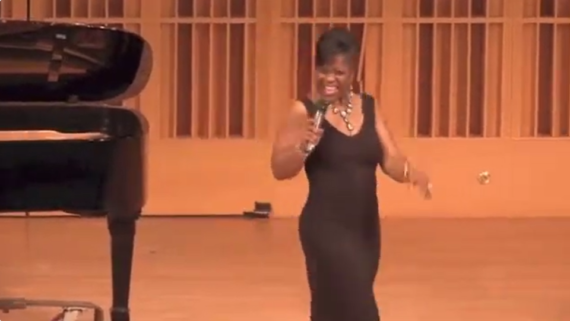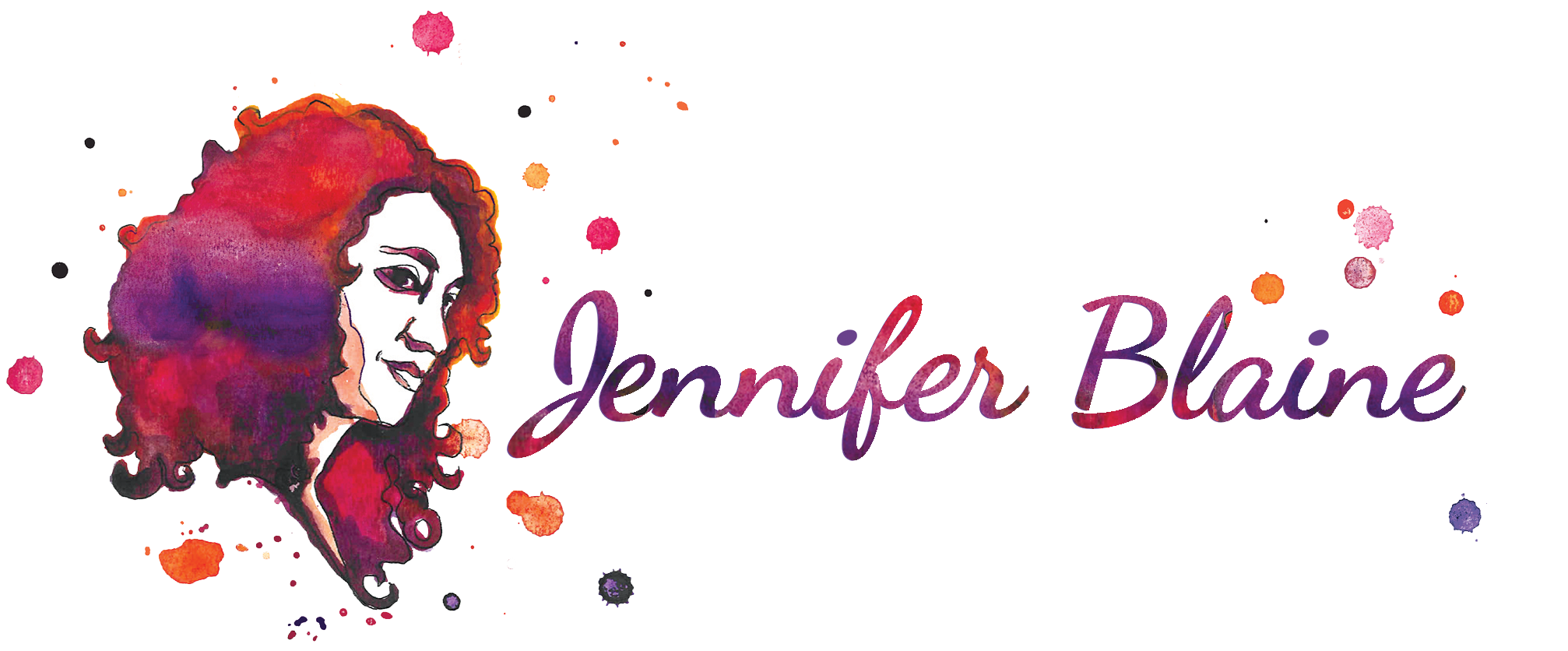5,000 Women, Wesleyan University, May 2012
 PART I – THE PERFORMANCE
PART I – THE PERFORMANCE
I’ve just gotten back to Philadelphia after hosting the second “5,000 Women” festival at Wesleyan University. When my colleague Vashti Dubois and I walked into Crowell Concert Hall, we gasped “What a glorious space!”
The evening began with Aleta Staton performing a portion of her one woman show “Remember My Name” about Alberta Hunter. The electrifying Alva Nelson accompanied her on the piano. Staton serenaded the audience with Hunter’s words and music, as the audience we alternated between tearing up and laughing.
Next Jody Sperling, of Time Lapse Dance, performed a solo set to “Claire de Lune.” Sperling is internationally renowned as a choreographer and dancer, and as she glided through the space, white silk flowing like waves, petals, and memories that kept changing form, it was evident why.
Sue Guiney dazzled the audience with poems about three stages of women’s lives. My favorite: “Purple Hair, On seeing young poets at a reading.” Her words reflected the complexities, allure and quirkiness of her quest to map out her womanhood.
Naomi Ekperigin slammed us with an unbelievable comedy set, sending the audience writhing in hysterics. She called her Upper East Side high school a “dream killer,” since no one made out there, whereas she admitted Wesleyan was the easiest place to get some action based on having only the basics in common.
Sarah Wolfe, Mica Taliaferro, and Emma Maclean performed an excerpt of “The Trojan Women.” It was hypnotic to experience the Greek tragedy as adapted by these students. They gave it a contemporary take, using themselves as both the characters and a small Greek chorus.
Kerry Holahan, a soprano soloist, was nothing less than arresting. Her set was comprised of 2 classical and one Chinese operatic song. She shifted gears to deliver each of them in such a way that each was accessible, as we hung on her every note. Michael Noble was her elegant accompanist, and no one could believe they had had just one hour of rehearsal, they were so phenomenal.
The performance ended with an excerpt of “Blackbird,” by David Harrower, performed by the riveting Mandy Goldstone, a student graduating with high honors.
I hosted in the guise of my myriad original characters. It was challenging and fun to be the glue between each of the acts. My characters included: Ruth, Danny, Gina the English Lesbian Widow, Bill the body piercer, Helmut, Dr. Amir, and Mami, who all strutted their stuff.
There were many support people I’d like to acknowledge here, including Bob and Tony who provided wise-cracking technical support and Vashti Dubois who helped with absolutely everything.
The head of the Center for the Arts, Pamela Tatge, was once again delighted by the performers. Barbara Ally, Assistant Director, literally and figuratively embraced us all and made sure we felt at home. We hope to collaborate and bring the event back at other times, so the world can experience what Wesleyan women performance artists are creating.
PART II. THE PANEL: MAKING IT IN THE ARTS
For the Saturday panel, “Making It In The Arts,” I was joined by several alumnae Suzanne Appel ’02, the managing director of the Cutting Ball Theater in San Francisco; Wendy Black-Nasta P’07, an international jewelry designer since 1977 and is the Founder and Executive Director of Artists for World Peace, a nonprofit organization that creates opportunities for artistic expression – fostering world peace and raising funds to benefit humanitarian causes around the world.; Rachel Basch ’80, the author of two novels, The Passion of Reverend Nash and Degrees of Love, Naomi Ekperigin ’05, a writer, stand-up comedian, and actor who has performed around the world, including Sydney, Australia, San Francisco, and New Zealand, and Vashti Dubois ‘92, director and dramaturge, whose background in social justice, art and social change, and youth development are the catalyst for her own creative work. There were many brilliant stories disseminated by the panel. Here are some of the incredible highlights of the discussion.
Suzanne Appel noted that in her work as Artistic Director for Cutting Ball the most rewarding experiences came from giving artistic works exactly what they required. She reminded us of the fluid nature of leading a creative life. She reported that some of her friends who enjoyed artistic success early in their careers, shifted gears and went on to do other things. As she has continued to produce fascinating experimental theater, she said that “with Wesleyan behind me I had the confidence to go for it.”
Rachel Basch recounted a story about a day when her writing professor slammed down a book on a desk and denigraded it, calling it “kitchen fiction.” At that moment she discovered that actually that was precisely what she wanted to create! Due to this seminal event, she credits the teacher with being her “reverse mentor.” Basch added “It takes a long time to build a creative career. You have to find your own way. Keep your eyes on your own paper. Whatever art you’re doing, you’re always ascending. If you are making art in this society, we live in you’re doing something dissident. It’s counterculture. You can’t measure with the yardstick other people use to measure success. You have to develop your own way to measure.”
Wendy Black Nasta shared that she spends a lot of time in her studio processing her ideas. She stressed the importance of being totally honest wherever one might be in one’s life. She also said that there have been times she has not had any money, but that that has not deterred her from questioning her art, or from doing anything but art. She has mentored at least 200 women in the world, and is always doing her art. Wendy’s advice? “Believe in yourself, because you can make a living in the arts.”
Wesleyan taught Naomi Ekperigin that the feeling she had prior to being at Wesleyan, that there was something wrong/different about her, wasn’t because of who she was, but was because of who other people were. She said that being challenged academically at Wesleyan taught her to be super-competent so that out in the world she could reliably “generate the content” so she always finds time for her creative pursuits. She also admitted that while others on the panel might be willing to go without during lean times, “Bless them, but I am delicate, I need a high thread count.” She also shared the sobering story of auditioning for “30 Rock,” for a part she knew she was ideal for, an African-American businesswoman. She didn’t get it, and when the segment aired the part was played by a white woman.
Vashti Dubois revealed that her career has taken a serpentine route. She’s always been doing something else and all the while also creating as a performance artist. She spoke of first attending Wesleyan and being told that she’d need to create her own work to perform since Wesleyan at that time only did traditional casting. She responded by deciding to leave Wesleyan and go out into the world and co-create the Mumbo Jumbo Theater Company to present opportunities for women of color and others to play whatever parts they wanted to, while also making it possible for them to earn money so that their art and livelihood could be one and the same.
After the panelists spoke, a grad from ‘11 asked, “How do I say no to certain projects when I want to be working all the time, but I’m also exhausted?” Naomi Ekperigin offered that making choices out of fear and desperation is unnecessary. She assured the woman to consider that all these opportunities are “not going anywhere.” I encouraged her to breathe into her body and see whether she had a yes or no to doing a project before committing to it. I offered that if she has an “I don’t know” perhaps that is a no, since it is not a clear “yes.”
Another question, posited by a parent. was “How do I handle my child choosing a life in the arts, when both parents are scientists, and frankly we are scared?”
Rachel Basch responded with a story of a student asking her to call his mother for him to break the news that he wanted to be a writer, and she told him “If you are going to be an artist, then you need to be able to make the call.” If people are going to choose the path, they need to be brave enough to do things for themselves. Vashti Dubois added, “As an artist you have to have a tremendous amount of courage to create what you want. If it’s your child you must say, “this is not my journey now, but I will support you.”
I stayed afterward and discussed options for keeping this “5,000 Women” dialogue going with Kerry Holahan. She had great points to share as well, pointing out that as women in the arts “we are inherently using too much of our time making money so we can do our art,” and that we should endeavor to find creative ways to transform that dynamic.
Thank you everyone who participated!

